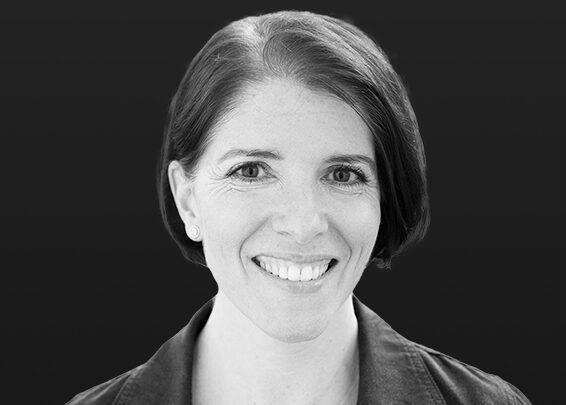The Ultimate Guide to Personal Finance | Tory Burch Foundation
The Ultimate Guide to Personal Finance
Advice from former editor-in-chief of Money Magazine, Diane Harris.
37,573 Views
0 Likes
9 min read
Link copied to clipboard
It’s safe to say that entrepreneurs are faced with a new set of hurdles when it comes to the personal finance realm. And the truth is, having your finances in order is one of the most important aspects of managing and building your own business. Diane Harris, an award-winning personal finance journalist and financial wellness speaker and advocate, shared with us her insights in the interview below. She is the former editor-in-chief of Time Inc.’s Money Magazine – the first woman to hold the top job – and a founding editor of its website, Money.com. Currently, Harris is writing a book on financial wellness along with a bi-monthly column for the PBS website NextAvenue.org and launching a related coaching and consulting business.
What initially drew you to the personal finance world?
To be honest, I fell into personal finance rather than actively choosing it. I am a journalist first and foremost, and when I got out of graduate school, the jobs were in business journalism (I originally intended to cover politics and social issues). But, over the years I’ve grown to love covering personal finance because it’s all about helping people have more choices about how they’re able to live their lives and empowering them to pursue their dreams. So, in my own way, I’m covering social issues after all.
As the former editor-in-chief of time INC.’s money magazine, what is your advice when it comes to effective leadership?
As a leader, you have to start with a vision – about the mission of the organization and how to get there. Then, you must be able to clearly articulate that vision to your staff, make your expectations of their role in achieving it clear and reasonable, and work to create the conditions that make it possible for them to do what you’ve asked – to do their very best work.
Of course, you also have to be able to clearly articulate that vision to the public and the colleagues within your organization who are your partners in achieving it. Being able to see things from other people’s perspective is a key part of all of this – identify what they see and what they need from you to be able to buy into your vision and be energized to work with you to achieve it.
Financial wellness is…
The ability to cover your current expenses without strain, to absorb a financial shock if you’re hit with one, to be on track for your longer-term goals, and still have enough financial freedom now to enjoy your life, whatever that means to you.
People often talk about the first three, but don’t include the last one, which is also critical—to enjoy life without stress, you need a degree of financial flexibility that allows you to do what you value and makes you happy.
What are three tactics for financial wellness that our entrepreneurs can implement today?
- Build a rainy-day fund, because even if it’s sunny today, you know there will be clouds at some point – something will happen in your business or personal life that knocks you off your stride and costs money to fix. If you have some cash socked away for the inevitable emergency, you won’t have to borrow or deplete other savings or take any other drastic measures to get through it. I wrote “The Best Way to Stress Less About Money” to provide advice on saving for emergencies, and making it easy on yourself.
- Don’t drain your retirement savings to fund your business. Yes, I know everyone does it. But, you will really put yourself in a vulnerable position when you’re older and no longer able to save. Don’t fool yourself into thinking you’ll just sell the business and that will be your retirement fund – it’s not that easy. If you can’t raise enough money from liquid savings, friends and family, and other investors, at least cap the amount you take from your 401(k) or other retirement account at 25% of the total. If that’s not enough, maybe you should wait until you’ve saved more to launch your business.
- Have a Plan B. I’m a big believer in a back-up plan, in thinking about the what-ifs before they happen, and having some idea of what you might do. What will you do if it takes twice as long as you estimate to generate revenue? What if a big client backs out? What if your partner wants to throw in the towel? Hopefully, you never have to activate your Plan B. But either way, it’s a great stress reliever as well as practically helpful to have some idea of how you’d proceed if things don’t go as you’ve planned.
Top personal finance tools and resources that you would recommend?
I’m a little old school here. One of the first, and still the best, money management apps is Mint. It updates and characterizes your spending in real time so you get a good picture, you can pay bills with it, get your credit score – lots of good stuff.
For saving, I’m a fan of Acorns, which automatically rounds up your transactions and sends the change into an investment account—so if you spend $2.50, the app will round it up to $3 and send the 50 cents to your investment account. It’s an easy way to build savings.
And for investing, I like Personal Capital, which combines a so-called robo-advisor with human advisors. You have to pay to invest with the company, but they have some great free tools on the site – like one that recommends the right investment mix and another that analyzes your 401(k). Good stuff!
What do you enjoy most about your role as a financial wellness advocate?
I love being able to help relieve people’s stress about money! Money is the No. 1 cause of stress in the country and in the workplace, across all demographic groups – men, women, old, young, low earners and high earners. I love being able to show people (especially women) that this stuff isn’t rocket science and boil down what seem like complicated concepts into easy-to-understand, practical steps.
How would you describe your approach to spending and saving money?
On saving, I automate everything to make it easy to save and do the right thing with my money. So, I have contributions to my retirement and emergency savings accounts automatically deducted from my checking account every time I get paid. Easy peasy, done!
On spending, for most discretionary purchases – the stuff I don’t need but really want – I give myself a cooling off period of a few days before I buy. If I still really want it then, and I have the cash, I go for it (more than half the time, I don’t want it anymore). And, I budget for the occasional splurge – treating myself from time to time, makes it easier to be disciplined about NOT spending the rest of the time.
What is your best advice for the first-time investor?
Make it easy on yourself. You can get an entire, well-diversified, low-cost, professionally managed portfolio with one mutual fund. This is a so-called target date fund that puts together an optimal mix of stocks and bonds for you based on your age and the year you think you’ll retire (Vanguard is my favorite fund company for this). It’s a no-fuss no-muss way to invest, with great returns over the long run.
You are currently working on a new book aimed at taking the stress out of managing money. Can you share with us the premise of the book?
In this book I can tell you three things to do with your money, and if you do all three and keep doing them, you’ll be okay financially for the rest of your life. Will they solve every single problem you have? No. But, they will get you a lot of the way there.
In fact, I can give you a three-step plan for nearly all common financial challenges and goals people have – from getting out of debt to saving for college and retirement, to teaching your kids to be smart about money to putting an end to money fights with your spouse, to getting a raise at work or landing a promotion.
When there are more than three steps, people feel overwhelmed, especially given how busy and demanding their lives already are, so they end up doing nothing. That’s why I boil it all down to three, based on tons of research about what’s most effective when it comes to your money and my own many years of experience.
What is the biggest challenge you see entrepreneurs facing when it comes to personal finance?
I think entrepreneurs are so passionate about their business and pouring everything they have into it that they often neglect to take care of themselves, financially at least. They may drain their savings, not pay themselves an adequate salary, get into debt, or fail to invest for long-term goals like retirement – and, in the long run, that can hurt the business as well as their own financial future. Don’t get me wrong, I love that entrepreneurial passion – it’s critical to success. And, as an entrepreneur myself, I get it. But you really do have to take care of yourself first – like how parents are advised to put their own oxygen mask on first before their child’s if the plane has an emergency.
Advice on overcoming these challenges…
I hate to sound like a broken record, but the basics of what you need to do are simple:
Make sure you have an adequate emergency fund before you launch. If you don’t, delay the launch until you build it up. Believe me, you will need it.
Don’t drain all your retirement savings to fund your business, you will need that too. Limit how much you tap your 401(k).
Maybe you want to talk to a financial advisor before you launch to set yourself up for success—a one-time counseling session with a fee-only planner. I have found Garrett Planning Network to provide reasonably-priced options.
What trends in personal finance should our entrepreneurs keep an eye on?
I think fintech is, and will continue, transforming the way we manage our money. That’s something to watch on a personal basis. There are so many tools and services that can help you manage your money better and they are constantly evolving.
It’s also something to watch from the vantage point of an entrepreneur. There are many possibilities for great businesses in this space. People are totally stressed out about money and hungry for help. Entrepreneurs who can help fill that need will be in high demand.
The one thing you wish every woman knew about personal finance…
Mistakes aren’t fatal.
You will make a mistake here and there when it comes to managing money – everyone does, and you will be okay. The fear of making a mistake often holds women back from investing and taking the lead in making financial decisions, because we feel we don’t know enough to make a sound decision. Men don’t let that stop them! Women know more than we think we do and men know less than think they do. Trust yourself – and if you do make a mistake, know you can bounce back from it.
What does #embraceambition mean to you?
Allow yourself to dream big – about the possibilities for your life, who you can be, and what you can achieve. It’s my wish for all women.
Help an entrepreneur by upvoting

